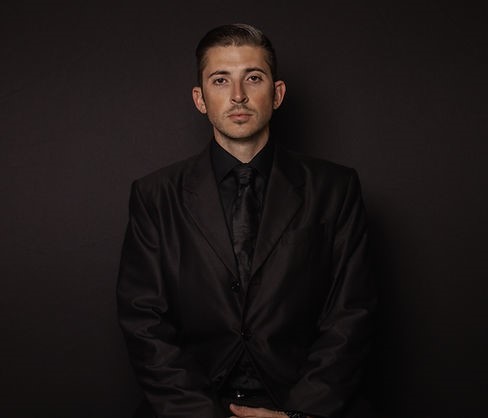Submitted by Diego Cifuentes
ADA, Okla. – For rural communities across Oklahoma, safe and reliable water infrastructure is not just a utility – it's the bedrock of sustainability. Joseph Harris, Community Coordinator at The Oka' Institute at East Central University, stands at the forefront of this crucial effort, acting as a vital bridge between communities, technical partners, and essential funding opportunities.
In a recent interview, Harris shed light on the Institute's multifaceted approach to addressing some of the region's most pressing water challenges.
Harris emphasizes that his role isn't about a rigid playbook, but about adaptability and trust. "As Community Coordinator, I serve as a bridge between rural communities, technical partners, and funding opportunities. Each day is different," Harris explained. "This job is rooted in trust. It’s not about checking boxes; it’s about doing what you said you’d do and being someone that communities can rely on."
This philosophy, he notes, underpins the success of the Communities Hub, a collaborative model developed with the Chickasaw Nation Office of Natural Resources, allowing multiple organizations and partners to work together for shared community benefit.
One of the most critical challenges Harris encounters is the fundamental lack of safe, reliable water. "I’ve experienced situations where communities were unable to keep water flowing to their customers — sometimes for extended periods," he shared. Beyond infrastructure, he highlights staffing limitations as a significant hurdle, where individuals often manage complex water and wastewater systems without adequate support. The Oka' Institute steps in to provide "clarity, structure, and momentum to projects that otherwise stall due to limited time and personnel."
Success, according to Harris, extends beyond ribbon-cuttings and secured funding, though the Institute has helped connect communities to millions of dollars in infrastructure funding. "The real win is what funding allows: sustainable water and wastewater systems, long-term planning, and renewed momentum in places that needed it most," he stated. He emphasizes the long game, where "even the quickest wins can take years, and the most lasting ones are planned over decades." Ultimately, he asserts, "Success is about people. It’s about relationships, persistence, and showing up until progress becomes possible.
The Oka' Institute employs innovative strategies through its Community Hub, including conducting community-based risk assessments under FEMA’s BRIC program, focusing on vulnerabilities like drought, wildfire, and flooding. These assessments, paired with Community Profiles, empower towns to understand their needs and prioritize actions for funding. Furthermore, a new long-range water rate projection tool is being developed to help communities make informed pricing decisions that impact future infrastructure health. However, Harris believes the most innovative approach is the Institute's unwavering consistency. "Our work isn’t built on one-off meetings or deliverables — it’s built on consistency. Whether we meet monthly or quarterly, we show up. That consistency builds trust, and that trust keeps the work moving forward."
Looking ahead, Harris's vision for the region is clear: "For rural Oklahoma and the Chickasaw Nation, sustainability starts with water. If water isn’t valued and prioritized for long-term system health, nothing else — not schools, hospitals, or businesses — can stand on solid ground." The Institute uses field-gathered data to inform policy, support local decision-makers, and guide investments, recognizing that these communities represent "history, family, and the future" that must be protected.
For communities grappling with infrastructure challenges, Harris offers practical advice: "Start by outlining the basics of a water plan: What’s your supply? What is the demand? Where are your vulnerabilities? And what are your mitigation strategies? That’s the foundation. If you understand those components, you can make informed decisions and begin moving forward." He emphasizes the importance of trust and consistency, drawing on his own experience: "Trust that you're here for a reason — and lead with your whole self." The multi-organizational engagement team, operating through the Community Hub, is here to help carry that weight and support leaders as they take the next step forward.
For more information about these initiatives or the comprehensive work of The Oka' Institute at ECU, Joseph Harris, Community Coordinator, can be reached at 1100 East 14th Street, PMB J-4, Ada, OK 74820, by phone at 580-559-5968, or via email at josdhar@ecok.edu.
Cutline: Connecting communities with vital resources, Joseph Harris serves as Community Coordinator for The Oka' Institute.
-ECU-

